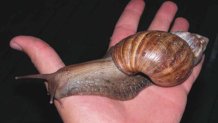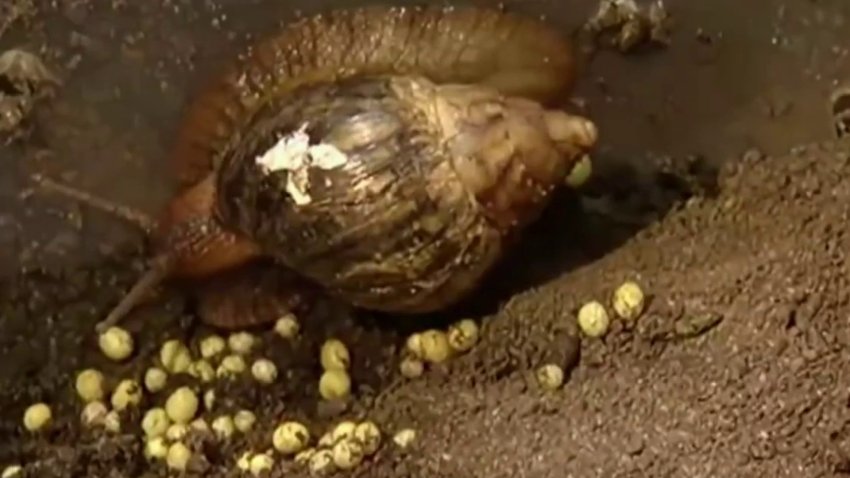A quarantine zone has been established in Broward County after a giant African land snail was spotted in Miramar. Here’s what to know.
A quarantine zone has been established in Broward County after a giant African land snail was spotted in Miramar on June 2.
Under the quarantine order announced Tuesday, it is illegal to move the giant snails or plants, including soil, compost and yard waste, in or out of the zone without a compliance agreement from the Florida Department of Agriculture and Consumer Services.
Watch NBC6 free wherever you are

The zone stretches from Pembroke Road to the north, NW 215th Street in Miami-Dade to the south, South University Drive to the west, and SW 62nd Avenue to the east.
Get local news you need to know to start your day with NBC 6's News Headlines newsletter.
The snail is considered one of the most invasive pests on the planet, causing agricultural and environmental damage, according to the FDACS. They consume over 500 different types of plants and can eat the stucco off of buildings.
They also pose health risks to humans as they carry the parasite rat lungworm, which can cause meningitis in people and animals.
African land snails can grow up to eight inches long and lays thousands of eggs at a time, making the population difficult to contain.
Local

Experts warn not to handle the snail without gloves because of the meningitis risk.
Efforts to eradicate the snails are underway, with the FDACS spraying the pesticide metaldehyde, also known as "snail bait," in two treatment centers within the quarantine zone. Metaldehyde disrupts mucus production in snails, leaving them to dry out and die within a few days.
The pesticide is typically applied around plants or crops in order to protect them, the FDACS said. Property owners inside of the treatment centers will be notified within 24 hours of the pesticide's application.

First detected in 1969, authorities believe the giant snails likely arrived in Florida when someone brought it home to the U.S. from abroad as a pet.
Florida has successfully eradicated the giant African land snail twice before, in 1975 and 2021.
The state used Labrador retriever dogs to help curb the snail population in 2021. The USDA trained the dogs to sniff out the giant African land snails.



